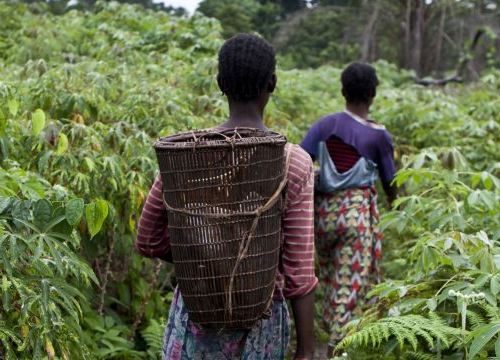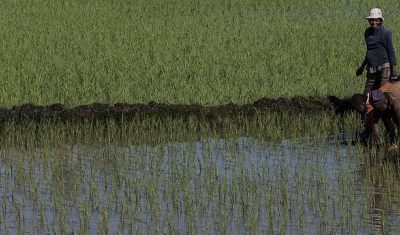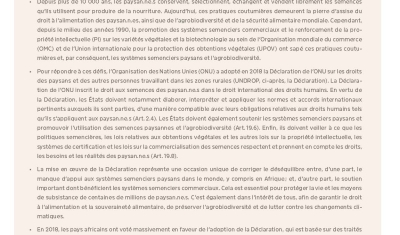How to Ensure Gender Equality and the Right to Food in Contexts of Agricultural Commercialization?


ICRC
27 February 2017
Our new Research Brief Gender Equality and the Right to Food in Contexts of Agricultural Commercialization highlights the role international human rights law and policies on the right to food and gender equality may play in mitigating the negative impacts of agricultural development.
Gender Inequalities in Contexts of Agriculture Commercialization
Changes in agricultural production and land use influence power relations between women and men. Research demonstrates that the increasing commercialization of agriculture, particularly the promotion of export-oriented non-food crops accompanied by large-scale land acquisitions, reinforces existing gender-based inequalities.
The development of agribusinesses tends to perpetuate structural forms of discrimination against women in agricultural employment, notably their concentration in unregulated, low-skilled, poorly remunerated and insecure wage work without access to social security entitlements.
Large-scale acquisitions of land and the privatization of commons including, forests, grazing lands and water resources, has been shown to benefit certain groups of men, while generally disadvantaging women. In countries where the rights of women to own, inherit, transfer, use and control land and other natural resources are restricted, these processes of agricultural commercialization can reinforce existing inequalities by consolidating private ownership and by privileging the development of large-scale, industrialized models of production.
At the household level, commercialization of agriculture can contribute to a decline in subsistence food production and a reduction in dietary diversity, quality and cultural acceptability of food. In poor rural families, where food is scarce, women tend to cut their protein intake and are therefore more likely to suffer from nutritional deficiencies than men.
These changes operate in a context where women and girls already constitute the majority of the world’s food insecure while being, at the same time, crucial actors in ensuring food security in rural areas.

Adopting a Rights-Based and Gender-Equitable Approach
Existing international human rights instruments on gender equality and the right to food entail clear obligations for governments and other actors to ensure that all people have physical and economic access to adequate food and the means of accessing food at all times.
‘International human rights law and related policies on the right to food and gender equality contain a number of key principles that are applicable within contexts of agrarian change’ underlines Joanna Bourke Martignoni, the author of the report. ‘These principles provide concrete guidance and tools for policy-makers and other actors to ensure the realisation of gender equality and the right to food in practice’ she adds.
Research for Development
Our longitudinal research project examines the right to food and gender equality as key drivers of food security in the context of land commercialization in two case-study countries, Cambodia and Ghana. This Research Brief has been developed to provide an overview for policy-makers, legislators and civil society of the current state of international law and policy on gender equality and the right to food within settings of agricultural commercialization.











